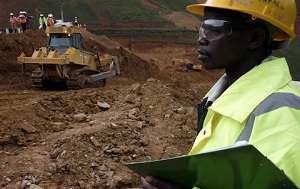More than a decade on, the country remains divided politically and economically, with ordinary Libyans enduring the consequences.
Certified Financial Planner and geopolitical expert Mona Manzambi says the country’s ongoing crisis is adding further strain to households already struggling with high inflation and currency devaluation. According to Monzambi, this devaluation has eroded people’s purchasing power, making everyday life even harder.
“The situation has become even more challenging for households. People’s money is worth much less, and inflation is pushing prices higher. Things that cost 100 Libyan Dinars before are now priced at around 113, assuming everything else stays the same,” she said.
Despite the hardship, Monzambi believes the situation could also present opportunities for change. The devaluation of the currency, she argues, might have some benefits, particularly in terms of the country’s exports and local economy.
“One of the positives is that Libya’s growing debt is now cheaper to manage, which could ease financial pressure. Additionally, with the devaluation, exports like oil are becoming more attractive, while imports are getting more expensive. This could potentially lead to a boost in local economic activity, especially if there’s an increase in oil revenue,” she explained.
However, Monzambi also pointed out that Libya’s heavy reliance on imports, particularly for essentials like food and medical supplies, means the country may not fully benefit from the advantages of a weaker currency. The country’s underdeveloped industrial and agricultural sectors continue to be a major obstacle.
While the road to economic recovery is uncertain, Monzambi stresses the importance of structural reforms to rebuild Libya’s economy. She highlights the need for a more unified economic governance system that involves broad political dialogue and the creation of strong, independent institutions.
“There’s a real need for structural reforms and international support to stabilise Libya’s currency and lay the foundations for economic recovery. A unified approach to economic governance is crucial, including political dialogue, a national budget that everyone agrees on, and building strong, autonomous institutions,” she said.
In the same vein, energy expert Shaun Moore from the University of Dundee in Scotland also weighed in on how Libya’s oil and gas sector could be key to the country’s recovery. He suggested that international support and a more stable political environment would be necessary to attract investment to the sector.
“Libya has massive oil and gas reserves, but these require substantial investment. Without a secure and stable political environment, investors will be hesitant. The model used in Iraq, where Kurdistan has semi-autonomy but still remains part of Iraq, could work for Libya. What’s important is ensuring that the political environment is stable, and the fiscal regime is attractive to investors,” he said.
--ChannelAfrica--













